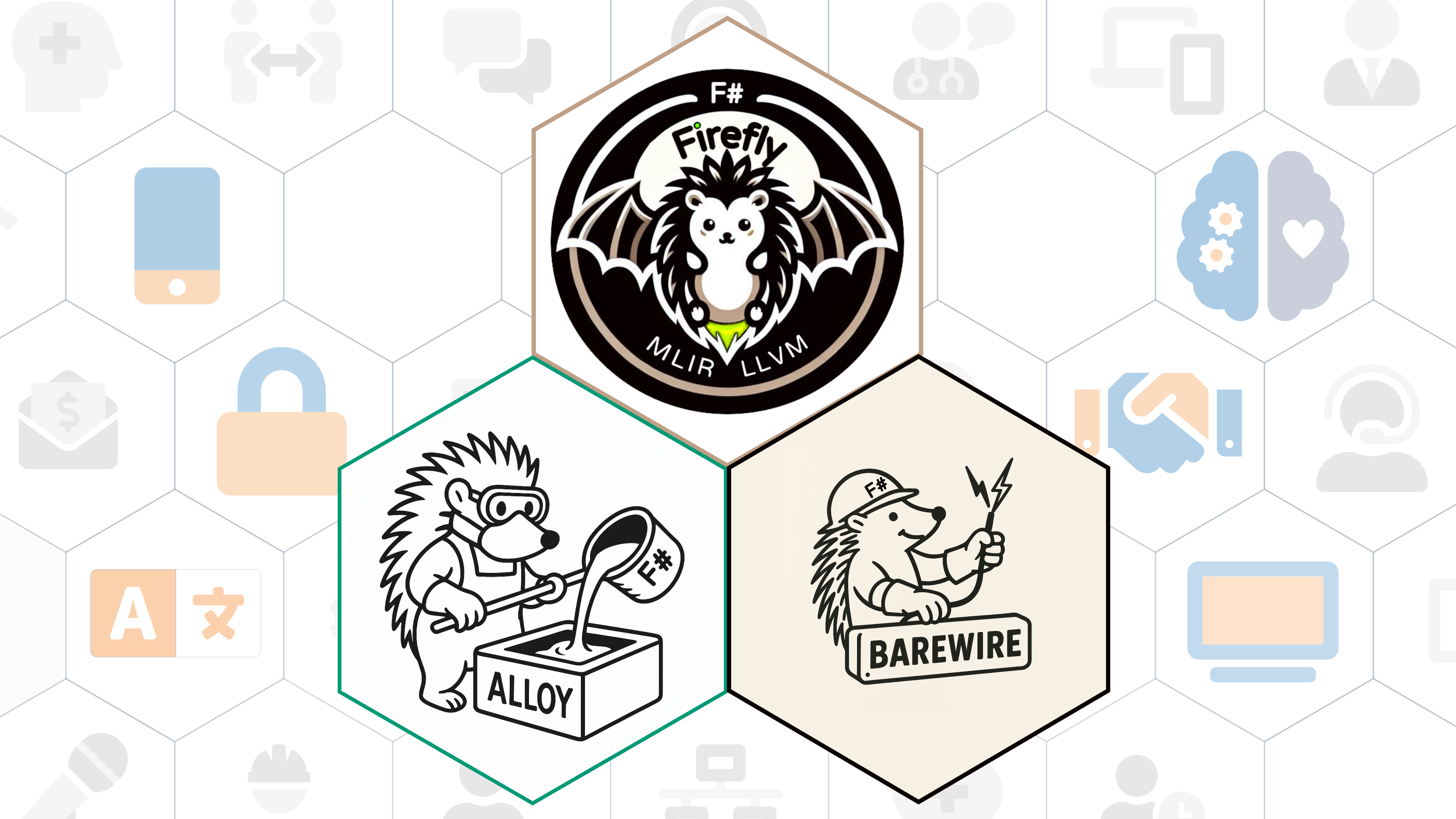Blog posts exploring the concept "Native-Compilation"
← Back to all tagsLeaner, Smarter AI Cloud Systems
The promise of edge computing for AI workloads has evolved from experimental optimization to production-ready enterprise architecture. What began as our exploration of WASM efficiency gains has matured into a comprehensive platform strategy that leverages Cloudflare’s full spectrum of services; from Workers and AI inference to containers, durable execution, and Zero Trust security. A Pragmatic Approach Our initial focus on pure WASM compilation through the Fidelity framework revealed both the tremendous potential and practical limitations of edge-first development.
Read More
Escaping The Steamcar Era of AI
The Steam-Powered Illusion The current AI oligarchy’s greatest deception isn’t about capabilities; it’s about implementation. While hyperscalers tout their models as “flying cars” of intelligence, the reality behind the curtain resembles something far more primitive: akin to steam-powered automobiles complete with teams of engineers frantically shoveling coal into boilers just to keep the engines running. This isn’t hyperbole. Today’s AI models require data centers that consume the water and power output of small cities, yet deliver chronically delayed responses in a technology environment where commercial viability is determined by human interactions measured in milliseconds.
Read More
Alloy.Rx: Native Reactivity in Fidelity
The integration of reactive programming into the Fidelity framework presents a fascinating challenge at the intersection of practical engineering and algorithmic integrity. While exploring various reactive models, we discovered valuable insights from Ken Okabe’s Timeline library - a minimalist F# implementation that demonstrated how powerful reactive systems could be built with remarkably little code. This simplicity was a key inspiration for Alloy.Rx, though we’ve evolved the concepts to align with Fidelity’s unique architectural requirements.
Read More
Beyond Zero-Allocation
The journey of building the Fidelity Framework has taught us that meaningful changes require careful conceptual positioning alongside technical innovation. When we first introduced the design of Firefly’s zero-allocation compilation capabilities, we established a foundational principle that continues to guide our architectural decisions: functional programming should compile to efficient native code without runtime dependencies. Today, we want to explore how this foundation extends naturally into our roadmap for memory management, and is consistent with the core principles that make Fidelity unique.
Read More
Farscape's Modular Entry Points
The Fidelity framework’s Farscape CLI addresses a pressing challenge in modern software development: how to enhance the safety of battle-tested C/C++ tools without disrupting the countless systems that depend on them. Every day, organizations rely on command-line tools like OpenSSL, libzip, and many others that represent decades of engineering expertise but carry the inherent memory safety risks of their C/C++ heritage. Farscape’s “shadow-api” design aims to provide a breakthrough solution: the ability to generate drop-in replacements for these critical tools that maintain perfect compatibility while adding comprehensive type and memory safety guarantees.
Read More
Intelligent Tree Shaking
When we set out to design the Firefly compiler for the Fidelity Framework, one of our core goals was to produce truly minimal native executables. In the world of traditional .NET development, your “Hello World” application carries the weight of the entire runtime and referenced assemblies, resulting in deployments measured in megabytes. For embedded systems, high-frequency trading platforms, or any scenario where every byte matters, this overhead is unacceptable. Our solution involves a revolutionary approach: type-aware tree shaking that operates directly on the F# Compiler Services AST, preserving rich type information to guide precise dead code elimination.
Read More
Wrapping C and C++
The cybersecurity landscape has shifted dramatically in recent years, with memory safety vulnerabilities accounting for approximately 70% of critical security issues in systems software. This reality has prompted governments and industries to mandate transitions to memory-safe languages for critical infrastructure. Yet the economics of wholesale rewrites are daunting: decades of refined C and C++ code represent trillions of dollars in intellectual property and domain expertise. What if, instead of rewriting everything, we could wrap existing code in provably safe interfaces?
Read More
Considering HKTs in Fidelity
The debate over higher-kinded types (HKTs) in F# reveals fundamental tensions between theoretical elegance and practical accessibility. This analysis examines these tensions through two lenses: first, Don Syme’s philosophical stance that has shaped standard F#, and second, how the Fidelity framework’s unique position as a native F# compiler might change this calculus. The goal is to understand both perspectives while considering whether Fidelity’s different constraints warrant a different approach. For readers from different language communities, this analysis offers distinct insights.
Read More
Source-Level Dependency Resolution
The Firefly compiler represents a fundamental shift in how F# code gets compiled to native executables. Unlike traditional F# compilation that relies on pre-compiled assemblies and the .NET runtime, Firefly compiles F# directly to native code through MLIR and LLVM, creating truly dependency-free executables. This architectural choice creates an interesting challenge: how do we handle library dependencies when we can’t rely on traditional assembly resolution? Beyond Assembly-Based Dependencies Traditional F# development uses a well-established pattern where open statements resolve to compiled assemblies in NuGet packages.
Read More
Scaling FidelityUI: The Actor Model
As we’ve established in previous entries, FidelityUI’s zero-allocation approach provides an elegant solution for embedded systems and many desktop applications. But what happens when your application grows beyond simple UI interactions? When you need to coordinate complex business logic, handle concurrent operations, and manage sophisticated rendering pipelines? This is where the Olivier actor model and Prospero orchestration layer transform FidelityUI from a capable UI framework into a comprehensive application architecture that scales to distributed systems, all while maintaining deterministic memory management through RAII (Resource Acquisition Is Initialization) principles.
Read More
The Full Frosty Experience
The Fidelity framework represents an ambitious project to bring F# to native compilation without runtime dependencies. One of the most challenging aspects of this endeavor is the treatment of asynchronous programming. This design document outlines our approach to compiling F#’s async computation expressions to efficient native code through delimited continuations, and introduces Frosty, an enhancement that brings advanced async patterns to this runtime-free environment. 🔄 Updated July 25, 2025 True RAII principles for automatic async resource management Bidirectional PSG “zipper” computation expressions for async transformations Integration with Olivier actor model for structured concurrency …with special thanks to Paul Snively for his polyglot perspective that led to many of the connections drawn through the latest updates.
Read More
Leveraging Fabulous for Native UI
The journey of creating a native UI framework for F# presents a fascinating challenge: how do we preserve the elegant, functional programming experience that F# developers love while compiling to efficient native code with (in most cases) zero heap allocations? As we build FidelityUI, the UI framework for the Fidelity ecosystem, we find ourselves at the intersection of functional programming ideals and systems programming realities. Fortunately, we don’t have to start from scratch.
Read More
Accelerating Network Communication for Fidelity
As a companion to our exploration of CXL and memory coherence, this article examines how the Fidelity framework could extend its zero-copy paradigm beyond single-system boundaries. While our BAREWire protocol is designed to enable high-performance, zero-copy communication within a system, modern computing workloads often span multiple machines or data centers. Remote Direct Memory Access (RDMA) technologies represent a promising avenue for extending BAREWire’s zero-copy semantics across network boundaries. This planned integration of RDMA capabilities with BAREWire’s memory model would allow Fidelity to provide consistent zero-copy semantics from local processes all the way to cross-datacenter communication, expressed through F#’s elegant functional programming paradigm.
Read More
Building User Interfaces with the Fidelity Framework
The Fidelity framework introduces a revolutionary approach to building desktop applications with F#, enabling developers to create native user interfaces across multiple platforms while preserving the functional elegance that makes F# special. Drawing inspiration from the successful patterns established by Elmish and the MVU pattern - particularly within Avalonia - we take many lessons from Fabulous. FidelityUI adapts these proven approaches for native compilation, creating a framework that feels familiar to F# developers while delivering unprecedented performance through direct hardware access.
Read More
ByRef Resolved
The “byref problem” in .NET represents one of the most fundamental performance bottlenecks in managed programming languages. While seemingly technical, this limitation cascades through entire application architectures, not only hijacking developer productivity but also forcing them into defensive copying patterns that can devastate performance in memory-intensive applications. The Fidelity framework doesn’t just solve this problem; our designs transform the limitation into the foundation for an entirely new approach to systems programming that maintains functional programming elegance while delivering hardware-level performance.
Read More
Next-Generation Memory Coherence
SpeakEZ’s Fidelity framework with its innovative BAREWire technology is uniquely positioned to take advantage of emerging memory coherence and interconnect technologies like CXL, NUMA, and recent PCIe enhancements. By combining BAREWire’s zero-copy architecture with these hardware innovations, Fidelity can put the developer in unprecedented control over heterogeneous computing environments with the elegant semantics of a high-level language. This innovation represents a fundamental shift in how distributed memory systems interact, and the cognitive demands it places on the software engineering process.
Read More
Frontend Unfuzzled: A Gentle Introduction to MLIR
For .NET developers, the term “frontend” already carries rich meaning. It might evoke XAML-based technologies like WPF or UWP, the hybrid approach of Blazor, or perhaps JavaScript visualization frameworks such as Angular, Vue or React. Within the .NET ecosystem, “frontend” generally refers to user interface technologies - the presentation layer of applications. When that same .NET developer encounters terminology like “MLIR C/C++ Frontend Working Group,” something doesn’t quite compute. This clearly isn’t referring to user interfaces or presentation technologies.
Read More
Building Firefly with Alloy
The promise of functional programming has always been apparent: write code that expresses a process to an end result, not how the machine should perform those actions. Yet for decades, this elegance came with a tax - runtime overhead, garbage collection pauses, and the implicit assumption that “real” systems programming belonged to C and its descendants. The Fidelity Framework challenges this assumption by asking a different question: What if we could preserve F#’s expressiveness, safety and precision while compiling to native code that rivals hand-written C in efficiency?
Read More
The Shifting Computational Landscape and Returning Primacy of Compilers
The computing landscape has undergone seismic shifts over the past three decades, yet many of our foundational software platforms remain anchored to paradigms established during a vastly different technological era. Virtual machines and managed runtime environments like Java’s JVM and .NET’s CLR emerged during the late 1990s and early 2000s as solutions to very specific problems of that time: platform independence, memory safety, and simplified development in an era of relatively homogeneous computing resources.
Read More
Fargo: Native F# Source-Based Package Management
The journey from managed code to native compilation in F# represents a significant architectural shift. As the Fidelity Framework charts a course toward bringing F# to new levels of hardware/software co-design, we face a fundamental question: how do we distribute and manage packages in a world where the comfortable-yet-constraining assumptions afforded in the .NET ecosystem no longer hold? This article explores Fargo, a forward-looking package management system that reimagines F# code distribution for the age of multi-platform native compilation.
Read More
The Farscape Bridge
The computing landscape stands at an inflection point. AI accelerators are reshaping our expectations of performance while “quantum” looms as both opportunity for and threat to our future. Security vulnerabilities in memory-unsafe code continue to cost billions annually. Yet the vast ecosystem of foundational libraries, from TensorFlow’s core implementations to OpenSSL, remains anchored in C and C++. How might we bridge this chasm between the proven code we depend on and the type-safe, accelerated future we’re building at an increasing pace?
Read More
The Fidelity Framework: A Primer
The computing world has fragmented into specialized ecosystems - embedded systems demand byte-level control, mobile platforms enforce strict resource constraints, while server applications require elasticity and parallelism. Traditionally, these environments have forced developers to choose between conflicting approaches: use a high-level language with garbage collection and accept the performance overhead, or drop down to systems programming with manual memory management and lose expressiveness. Beyond Runtime Boundaries The Fidelity Framework represents a fundamental rethinking of this dichotomy.
Read More
F# Goes Metal: Fidelity's Hardware/Software Co-Design Revolution
The embedded systems industry has operated under a fundamental assumption for decades: achieving hardware control requires sacrificing high-level abstractions and type safety. This assumption has created a divide between embedded development and modern software engineering practices, forcing developers to choose between expressiveness and efficiency. The Fidelity Framework challenges this paradigm through a revolutionary approach that delivers hardware type safety with truly zero runtime cost, a breakthrough in hardware/software co-design methodology.
Read More
Fidelity Framework as AI Refinery
The AI industry is experiencing a profound shift in how computational resources are allocated and optimized. While the last decade saw rapid advances through massive pre-training efforts on repurposed GPUs, we’re now entering an era where test-time compute (TTC) and custom accelerators are emerging as the next frontier of AI advancement. As highlighted in recent industry developments, DeepSeek AI lab disrupted the market with a model that delivers high performance at a fraction of competitors’ costs, signaling two significant shifts: smaller labs producing state-of-the-art models and test-time compute becoming the next driver of AI progress.
Read More
F# Memory Management Goes Native
In the coming waves of “AI” innovation, the computing landscape will continue to fragment into an increasingly divergent array of hardware choices. From embedded microcontrollers to mobile devices, workstations, and accelerated compute clusters, developers will face a challenging decision: build with distinctly different “stacks” for each target or accept the deep compromises of existing cross-platform frameworks. Meanwhile, Python continues its paradoxical ascent, simultaneously becoming the lingua franca of modern computing while quietly imposing an unsustainable tax on engineering resources.
Read More